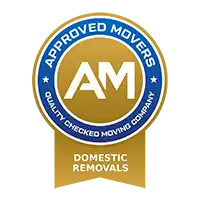
Criteria for Expanding your Moving Business
Every successful business eventually considers expansion, and the removals industry is no exception. However, while the prospect of growth is enticing, it can be perilous if approached without careful planning. In fact, many business owners in the removals sector make the mistake of expanding too hastily, which often leads to long-term issues. Given that the removals industry presents unique challenges, a strategic approach to expansion is essential. Therefore, it’s crucial to establish clear criteria for expanding your moving business and adhere to them. In this article, RemovalsPal will explore these criteria and outline a prudent expansion strategy.
When Should You Expand Your Moving Business?
Expansion typically follows a period of significant growth. While this is true across various industries, the removals sector presents specific challenges that must be considered. From launching a new removals company to becoming a leader in the field, competition is fierce. Therefore, the criteria for expanding your moving business should reflect this reality, especially if you are cautious about taking on unnecessary risks.
The ideal time to expand is influenced by three main factors:
- Your business is well-established and experiencing steady growth.
- The removals industry is growing.
- You can finance and sustain the expansion internally.
These are not the only factors to consider, but they are fundamental. A thorough, step-by-step analysis will provide additional insights to guide your expansion.
Establishing a Solid Foundation
The first criterion to consider is how well-established your business is. Start-ups rarely need, or can afford, to expand, whereas a business with a strong reputation in the industry may be ready for growth. Although this might seem obvious, it is worth emphasising, as expanding too soon can be a costly mistake.
Before considering expansion, focus on strengthening your business. Improve your online presence, enhance your local SEO, and boost your marketing efforts to generate more leads. Conduct SWOT analyses of your local competitors to outperform them and secure a strong position in your local market. The removals industry is highly competitive, so differentiating your business from others is vital. Once you have achieved this, you can more confidently consider expanding your moving business.
Responding to Customer Demand
Rising customer demand is another key indicator that it may be time to expand. In any industry, demand that exceeds supply is a clear sign that expansion might be necessary. In the removals industry, this demand can take several forms:
- The need for additional physical locations
- Increased demand for expanded services
- The need for more warehouse facilities
Any of these, or similar indicators, may suggest that your business is ready to grow. Additional locations can allow you to expand your operational area, possibly even beyond your current region if demand justifies it. Similarly, expanding warehouse facilities can enable you to offer storage services to a broader customer base. Offering additional services, such as premium moving options or international relocations, can help you better meet your customers’ needs.
However, these aspirations require careful consideration. For example, expanding might involve increasing your vehicle fleet, enhancing warehouse security, or upgrading inventory management systems. On the human resources front, you may need to increase your staff size and expertise. Ultimately, customer demand will play a significant role in determining whether you should expand your business.
Monitoring Growth in the Removals Industry
The removals industry is closely tied to the health of the broader economy. It’s logical: relocations are less feasible during economic downturns, while a thriving economy boosts demand for removals services. In the UK, for example, the industry has generally grown in line with economic trends. However, unexpected events like the COVID-19 pandemic can cause temporary setbacks. Although such events are rare, they highlight the importance of being prepared for all eventualities.
Aside from such anomalies, consistent growth in the industry can reassure you that expansion is the right move. Even if your business is thriving locally, it’s important to ensure that the industry as a whole is also growing. Analysing industry trends can help you gauge the potential for sustained growth. If the data suggests reliable growth, this is one of the safest criteria for expanding your moving business.
Ensuring Financial Stability and Managing Debt
Finally, as with any business venture, you must ensure that you can financially support an expansion. You might have an established business in a thriving industry with a strong customer base, but financial stability is crucial. Expansions inevitably come with increased costs, whether for facilities, equipment, or personnel. You must ensure that the financial benefits of expansion will outweigh these costs.
Ideally, your expansion should be funded primarily by your existing cash flow, with minimal external financing. If you do require a loan or investment, make sure you can repay it promptly. Accumulating debt is a common reason why expanding businesses fail. It’s advisable to minimise or eliminate debt before embarking on expansion. While aggressive growth can be risky, a calculated, gradual approach can help you expand your business successfully without compromising financial stability.





